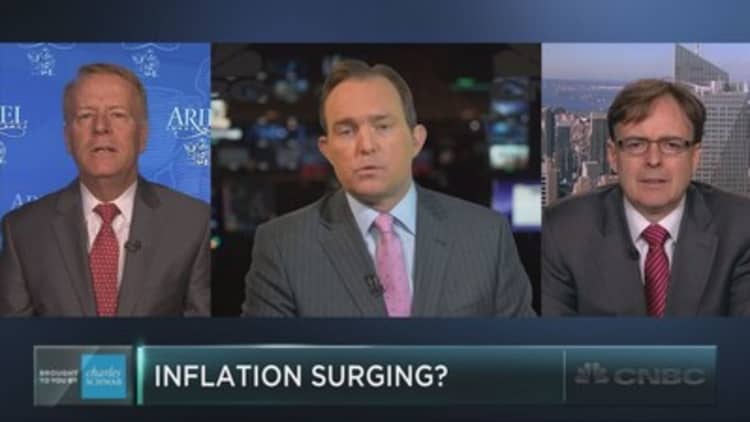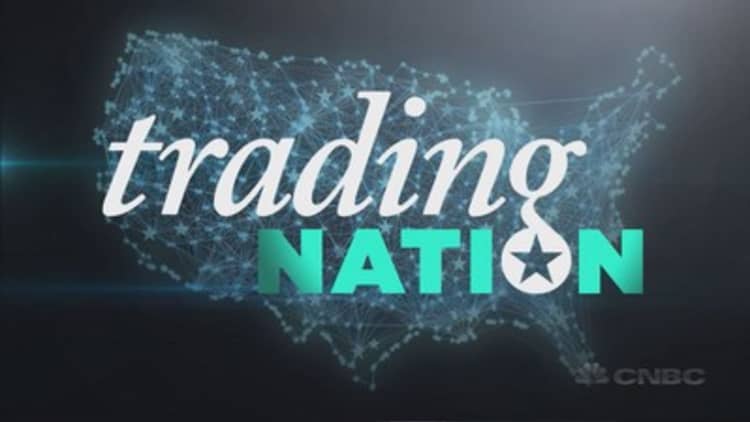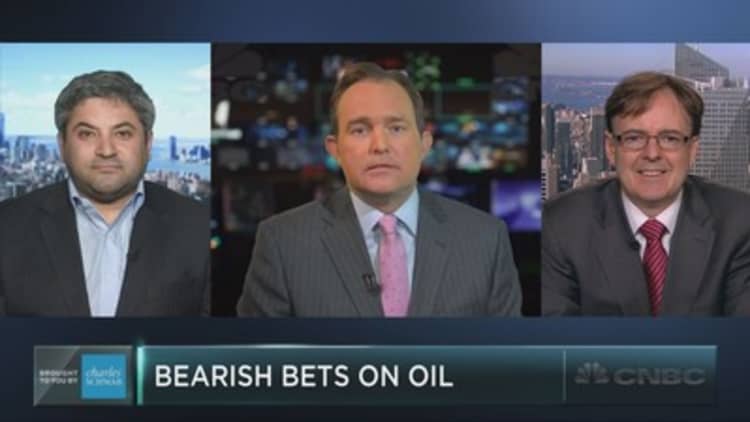


All signs point to rising inflation, but investors aren't properly pricing that into their decision making, according to one portfolio manager.
Inflation expectations are relatively low, economic data show, "which is just silly," Charles Bobrinskoy, head of investment group at Chicago-based Ariel Investments said, Monday on CNBC's "Trading Nation."
The median expected price change over the next 12 months, as measured by the University of Michigan's Surveys of Consumers, stands at 2.7 percent. For some perspective, the expectations for inflation in 1980 rose as high as 10.4 percent. Inflation expectations have been more or less contained at 2 to 3 percent between since late 2014. Actual inflation has run below 2 percent.
Looking forward, Bobrinskoy points to some key factors that could push inflation higher, including a strengthening economy and the Federal Reserve raising interest rates. What's more is "there's a lot of cash, a lot of lending going on around the world … labor costs are going up," and thus inflation is ticking higher.
And economic growth could push the central bank, which raised its federal funds rate last week for the third time since before the financial crisis, to hike rates more than it has let on. As central banks raise their federal funds rate, and thus sending interest rates higher, inflation is thought to decrease as investors tend to borrow less and save more.
The Federal Reserve Bank of St. Louis' 5-Year Breakeven Inflation Rate, another measure of expected inflation, is 1.89 percent, its highest levels since mid-2014.
When it comes to Fed hikes, "even if it's only two times more, that'll be another 75 basis points this year," he said, which will inevitably affect things like mortgages, rents and other economic factors when considering rising inflation.
The other side of the coin here is the U.S. dollar, which on Monday hit its lowest level in eight weeks (though closed the day barely positive). Rising inflation translates to a weaker currency. Said Bobrinskoy: "We have the first president who's ever tried to talk down the value of the U.S. dollar; that's never happened before. And the dollar going down is what inflation is all about."
However, investors postelection may in fact be pricing in too much economic growth, warned Larry McDonald, head of global macro strategy at ACG Analytics and editor of the "Bear Traps Report." He is bullish on bonds for the next six months.
"The entire Street in December got bought into a fantasy. We want to be back in the '90s. We want to get back to growth," not considering issues like an aging global population and the potential for a slowdown in global economic growth, McDonald said Monday on CNBC's "Trading Nation."





